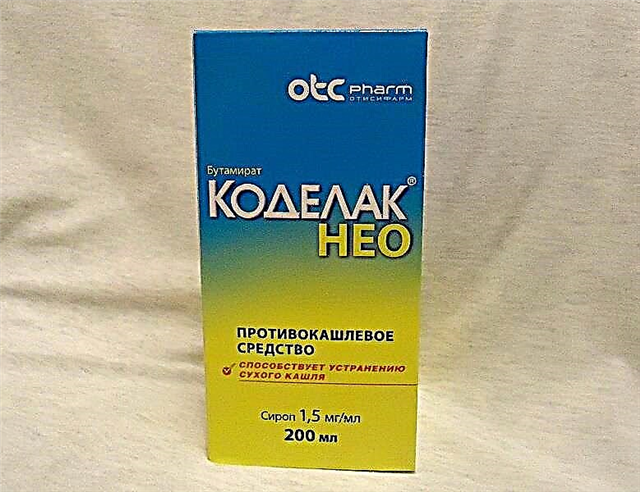
The question of choosing an effective anti-cough drug is very relevant for parents, since diseases of the respiratory system are quite common in children. When it comes to treating a child, then among the many means that help relieve cough and improve sputum excretion, herbal preparations are in greatest demand.
They contain herbs and plant extracts, therefore they are considered safer for the child's body. One of these remedies is licorice-based medicines. What are they and how do they affect the patient's body?

Useful properties of licorice
The roots of this legume, also called licorice, contain many active substances. It is thanks to isoflavonoids, essential oils, gricirrhizin, flavone glycosides, polysaccharides and glycyrrhizic acid preparations that contain an extract from licorice roots:
- stimulate the secretory function of the bronchi;
- eliminate the spasm of the muscles of the bronchial tree;
- activate the work of the epithelium of the respiratory tract;
- help to thin the mucus in the bronchi.


Licorice has not only an expectorant effect, but also has some anti-inflammatory effect, affects microbes (mainly staphylococci) and viruses in the respiratory system, accelerates the healing of the mucous membrane and stimulates the body's defenses (useful for strengthening immunity). The active substances of such a plant also have laxative, diuretic, antiulcer and antitumor properties.

Release forms
Preparations in which the active substances from licorice are the main active ingredient are presented:
- Powdered licorice rootpackaged in packs of 35, 40, 50, 75 and 100 grams of plant materials. Some manufacturers offer shredded roots in 1.5 or 2 gram filter bags, packed in boxes of 10-20. The crushed licorice root has a grayish-yellow color and a peculiar smell, and after brewing with water, a sweetish liquid is formed. The use of such a drug in children is allowed from 1 year.
- Licorice root syrup. It is sold in glass bottles containing 100 grams of a syrupy, sweet brown liquid. One bottle contains 4 grams of thick licorice root extract, supplemented with ethyl alcohol and sugar syrup. Some manufacturers' products may also contain citric acid, glycerin, preservatives and other compounds.
Such syrups are also allowed for children over a year old, but due to the presence of an alcoholic component in the medicine, it is recommended to give medication to a child under 12 years old only as directed by a doctor.


In addition, licorice extract is a part of various dietary supplements and multicomponent drugs with expectorant action. These include such funds:
- Linkas. Such a preparation includes extracts from several plants, including marshmallow, violet, ziziphus, alpinia, licorice and others. It comes in the form of a syrup and is used in children over 6 months of age.
- "Breast fee number 2". In such a herbal remedy, plantain and coltsfoot leaves are added to licorice roots. This collection is brewed with boiling water and given to children over 12 years old to drink.
- Amtersol. This syrup has an expectorant effect due to extracts from thermopsis and licorice, as well as ammonium chloride, sodium benzonate and potassium bromide. It is prescribed for children over 3 years old.
- "Breast Elixir"... As part of this product, anise oil and ammonia solution are added to the thick licorice extract. In childhood, it is used with caution and only as directed by a pediatrician.
- "Doctor Mom". This syrup includes extracts from ten medicinal plants and levomenthol. It has not only an expectorant, but also a bronchodilator effect. Children are prescribed this drug from the age of three.
- Codelac Fito. The basis of this drug in the form of an elixir is codeine, supplemented with plant extracts (in addition to licorice, the medicine includes thyme and thermopsis). The medication is in demand for coughing from 2 years of age.
- "Dry cough medicine for children"... Such a medicine is produced in bags or bottles, inside of which there are dry extracts from marshmallow and licorice roots, as well as anise oil, ammonium chloride and some other components. A doctor can prescribe this medication at any age.
- "Suprima-Broncho". This syrup helps with cough thanks to the active substances of turmeric, basil, adatoda, nightshade, licorice, ginger and other medicinal plants. Children are discharged from it from the age of three.
Indications
Preparations containing licorice are most in demand for wet coughs, when the secretion formed by the bronchial cells is excessively thick and viscous, which prevents its normal coughing. The medication is used for laryngitis, bronchitis, tracheitis, pneumonia and other diseases of the respiratory system. In addition, an extract from licorice roots can be prescribed for hyperacid gastritis and ulcerative lesions of the gastrointestinal tract.

Contraindications
All licorice preparations should not be given in case of hypersensitivity, exacerbation of gastritis, arrhythmias, bronchial asthma, high blood pressure, kidney disease, or serious liver pathologies.
Licorice syrup should not be used in children with diabetes.

Side effect
Some patients react to medications with licorice with nausea, redness of the skin, diarrhea, itching, rashes, or other signs of intolerance, which requires discontinuation of the drug. Too long treatment with an extract from the roots of licorice or an overdose of such a remedy can provoke swelling and high blood pressure.

Instructions for use
If plant materials are used, then an infusion should be prepared from it. The preparation method is usually indicated on the box. To make the broth correctly, take 8-10 g of chopped roots or one filter bag for 200 ml of boiled water. Covering the roots drenched in boiling water, they are left for 30-60 minutes. After straining the finished drink or squeezing out a bag, you need to add water so that the total volume of the tincture is 200 ml.
You need to take such a remedy two to four times a day, and a single dosage should be checked with a doctor. Usually, a one-year-old child is given an infusion in a teaspoon, for young patients over 3 years old - a dessert spoon, and from 12 years old - a tablespoon. The duration of treatment with such a drug is often 2-3 weeks.
The syrup made from licorice roots is given to children after meals, diluted with unheated boiled water. The bottle with the medicine is shaken, and then the required dose of syrup is dripped into a spoon or glass of water, and then offered to the patient. A child of 1-2 years old is given 1-2 drops of the drug at a time, a patient 2-6 years old needs 2-10 drops to be diluted in a spoonful of water, and from the age of seven, the medication is given 1 / 2-1 teaspoon.
Usually, such a remedy is taken three times, and the average duration of therapy is 7-10 days.


Purchase and storage
Purchasing crushed licorice roots or syrup made from them in a pharmacy is not difficult, since these funds are over-the-counter. The cost of these drugs is low and depends on both the type of drug and the manufacturer. On average, you need to pay 20 rubles for a bottle of syrup, and 30-40 rubles for 50 g of crushed roots.
The shelf life of plant materials is usually 2-3 years, and the prepared infusion can be stored for 48 hours by placing it in a cool place. The syrup, depending on the manufacturer, is valid for 2 or 3 years from the date of manufacture. Until the date marked on the bottle has passed, the sweet drug should be stored out of the reach of sunlight at a temperature not exceeding 25 degrees Celsius.

Reviews
The use of licorice-based medicines for coughing in children is generally well received. The main advantages of these drugs for mothers include a plant base, a low price and an effective effect on the respiratory system. The syrup is praised for its sweet taste, enveloping effect and ease of dispensing.
The disadvantages of this remedy are usually alcohol and sugar in the composition (because of this, many parents prefer to brew the crushed root), as well as contraindications. In addition, some children develop allergies after using the syrup.

Analogs
Instead of drugs based on licorice roots, children can be prescribed other herbal medicines that have a similar effect on the respiratory tract. These include:
- Althea syrup;
- "Gedelix";
- "Bronchicum C";
- Doctor Theiss;
- "Prospan";
- Bronchipret;
- "Eucabal";
- "Travisil";
- "Gerbion" and other medicines.
These products contain extracts from various plants that help thin phlegm and make it easier to cough up phlegm. However, each of them has its own contraindications (including age restrictions), therefore, to choose an analogue, you should consult a doctor. In addition, the doctor may recommend and expectorants without a plant base, for example, one of the preparations ambroxol or bromhexine.
In addition, in many cases, expectorant medication alone is not enough, and according to the results of the examination, other medications, in particular antibiotics, are prescribed to the child. That is why it is undesirable to buy syrup, lozenges, potion or other medicine for a coughing child without a preliminary examination by a doctor.

For the beneficial properties of licorice root and contraindications, see the next video.



